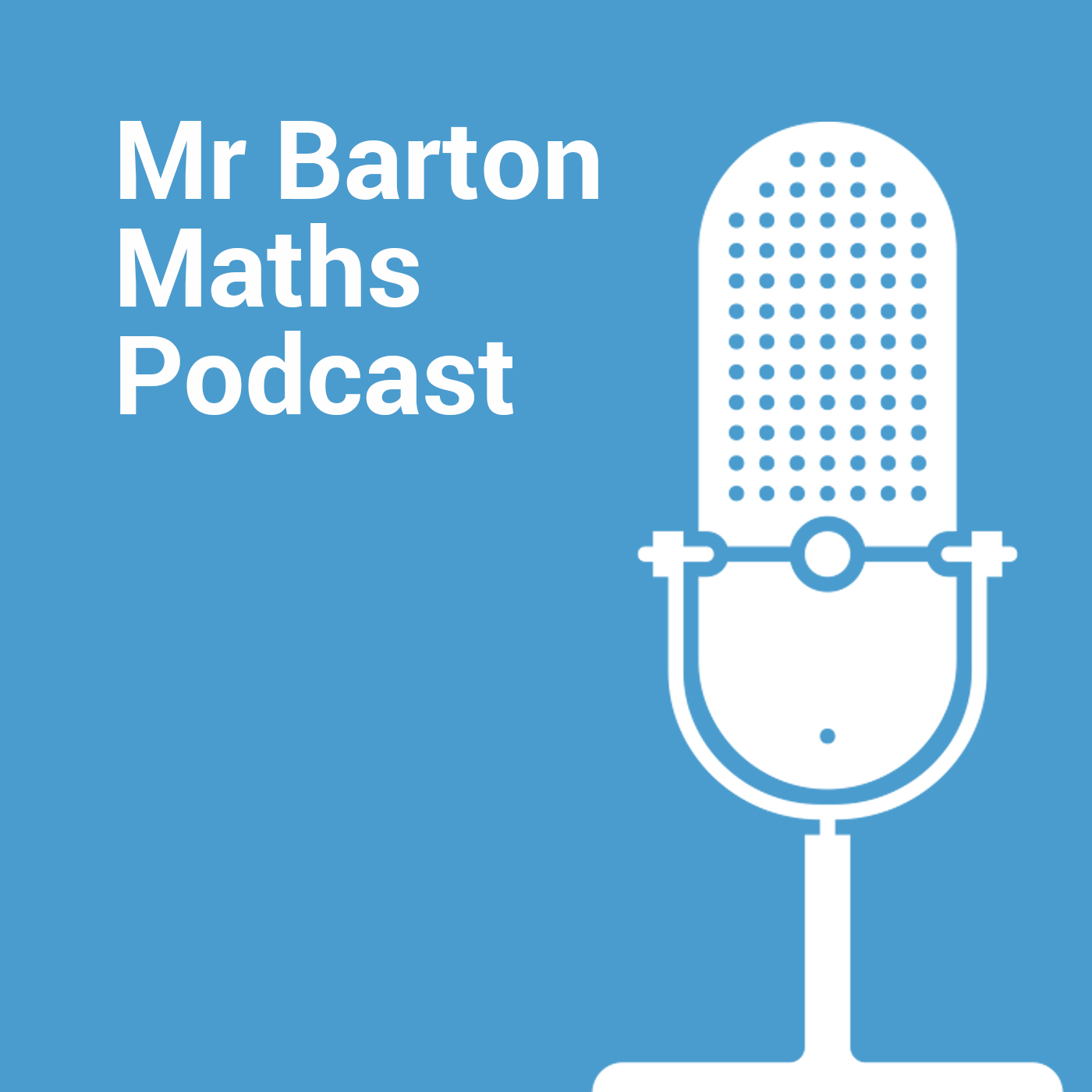

Mr Barton Maths Podcast
Craig Barton
Craig Barton interviews guests from the wonderful world of education about their approaches to teaching, educational research and more. All show notes, resources and videos here: https://www.mrbartonmaths.com/blog/
Episodes
Mentioned books

6 snips
Apr 9, 2025 • 48min
#199 Developing a lesson structure – episode 4 (with Ollie Lovell)
Ollie Lovell, a frequent guest and co-author of the Explicit Mathematics program, joins the conversation to dive deep into innovative teaching strategies. They discuss the 'Do Now' segment, emphasizing its critical role in checking student understanding. The duo shares effective techniques like using mini whiteboards and engaging students through peer assessment. They also reflect on classroom management with latecomers and the importance of clear communication. Plus, hear about their exciting upcoming tour across Australia!

47 snips
Mar 19, 2025 • 2h 10min
#198 AI and Education – episode 1 (with Neil Almond)
Neil Almond, an experienced primary school teacher and educator, discusses the transformative role of AI in education. He shares practical use cases for AI tools like ChatGPT and highlights their potential to streamline teachers' tasks. The conversation delves into AI as a 1-to-1 tutor for students, enhancing personalized learning. Neil also addresses ethical considerations and the need for teachers to retain essential skills amidst the rise of AI technologies, exploring their complex impact on the educational landscape.

Feb 28, 2025 • 57min
#197 Developing a lesson structure – episode 3 (with Ollie Lovell)
Ollie Lovell, a key contributor to discussions on math lesson structures and teaching strategies, dives into the intricacies of the 'Do Now' phase in teaching. He and his co-host explore content selection and student engagement during this crucial segment. The conversation also touches on fun parenting mishaps and their reflections on haircut journeys during the pandemic. Additionally, they share insights from educational experiences in Sweden and practical strategies for enhancing classroom interactions and supporting struggling students.

Jan 9, 2025 • 1h 13min
#196 Developing a lesson structure – episode 2 (with Ollie Lovell)
Ollie Lovell, an expert in mathematics education and instructional coaching, dives deep into lesson structure development. He shares insights from his collaboration with schools, emphasizing clarity and purpose in lesson planning. The conversation touches on innovative 'do now' strategies that boost student engagement and the critical role of retrieval practices. They explore the balance between structured lessons and flexibility, while also highlighting the importance of proactive feedback from educators to enhance overall teaching effectiveness.

15 snips
Nov 1, 2024 • 1h 19min
#195 Developing a lesson structure - episode 1 (with Ollie Lovell)
Ollie Lovell, a mathematics educator and collaborator, shares his innovative insights on developing effective lesson structures for math teaching. He discusses the importance of lesson sequencing and the instructional phases of 'I do, We do, You do' to enhance student engagement. Their conversation highlights crafting purposeful 'do now' activities and integrating retrieval practices to boost learning retention. Ollie also explores tailoring lesson structures for different age groups, ensuring that teaching methods meet varied student needs.

Aug 31, 2024 • 2h 1min
#194 A chat about Ollie Lovell's lesson
Ollie Lovell sent me a recording of a maths lesson he had recently taught in a school he has been supporting. I suggested we discuss the lesson, centring around Ollie’s planning, the decisions he made, and his responses in the lesson. Fortunately, Ollie agreed, hence what you are listening to now.
I have shared the video clips from the sections of the lesson that we discussed on the show-note page here: mrbartonmaths.com/blog/ollie-lesson

15 snips
Jul 11, 2024 • 1h 40min
#193 Tools and Tips for Teachers: Episode 14 (with Ollie Lovell)
In this conversation, Ollie Lovell, a talented educator and podcaster, joins Craig Barton to discuss innovative strategies for teaching and professional development. They dive into the creation of instructional playbooks, balancing student discovery with managing misconceptions. The duo emphasizes the transformative power of writing in classrooms for deeper engagement and reflection. They also highlight the complexities of educational communication, stressing the need for sustained professional development and actionable takeaways for teachers.

Jun 25, 2024 • 1h 10min
#192 Tools and Tips for Teachers: Episode 13 (with Ollie Lovell)
Experienced educator Ollie Lovell shares insights on breaking down concepts for effective teaching. Topics include productive struggle, atomization in teaching, benefits of shared curriculum resources, and the importance of balancing curriculum and pedagogy. The conversation also touches on the curse of knowledge, pairing teachers, and the power of storytelling in education.

32 snips
May 16, 2024 • 1h 16min
#191 Tools and Tips for Teachers: Episode 12 (with Ollie Lovell)
Education consultant Ollie Lovell joins the host to discuss teaching tools and tips. They cover strategies for handling student responses, the concept of atomisation in teaching, factors contributing to high-achieving schools, differences in pedagogy for senior students, effective feedback techniques, and teaching methods for math teachers.

35 snips
May 1, 2024 • 3h 16min
#190 Atomisation and Unstoppable Learning with Kris Boulton
Expert Kris Boulton discusses atomization in education, breaking down complex processes, teaching methods using taxonomy concepts, identifying mathematical 'atoms' for better instruction, simplifying math expressions, teaching concepts using examples and definitions, importance of examples in teaching, teaching quadratics with examples, using correlated features in teaching, teaching strategies with minimally different examples, and the power of atomization in enhancing student learning.


